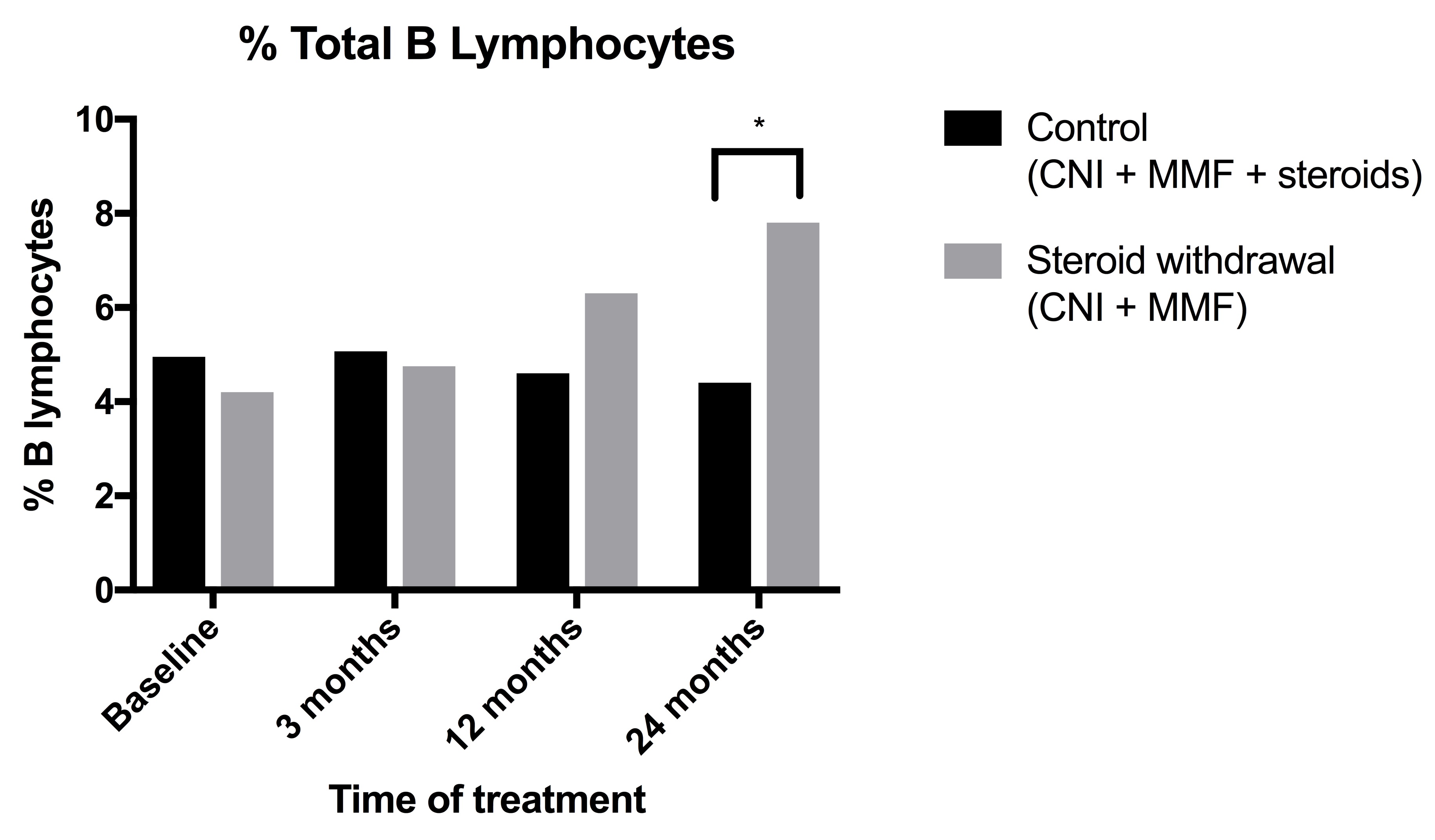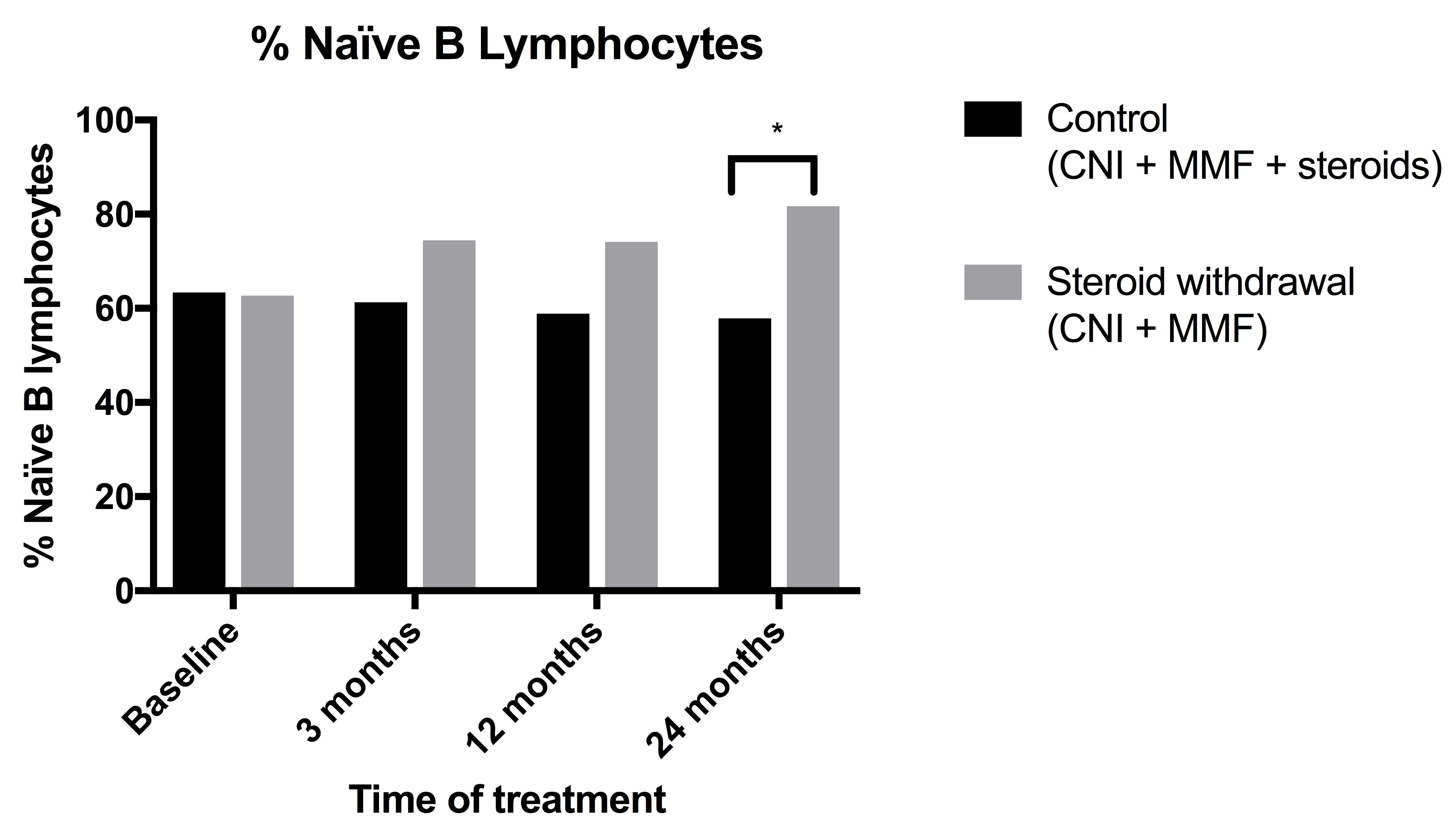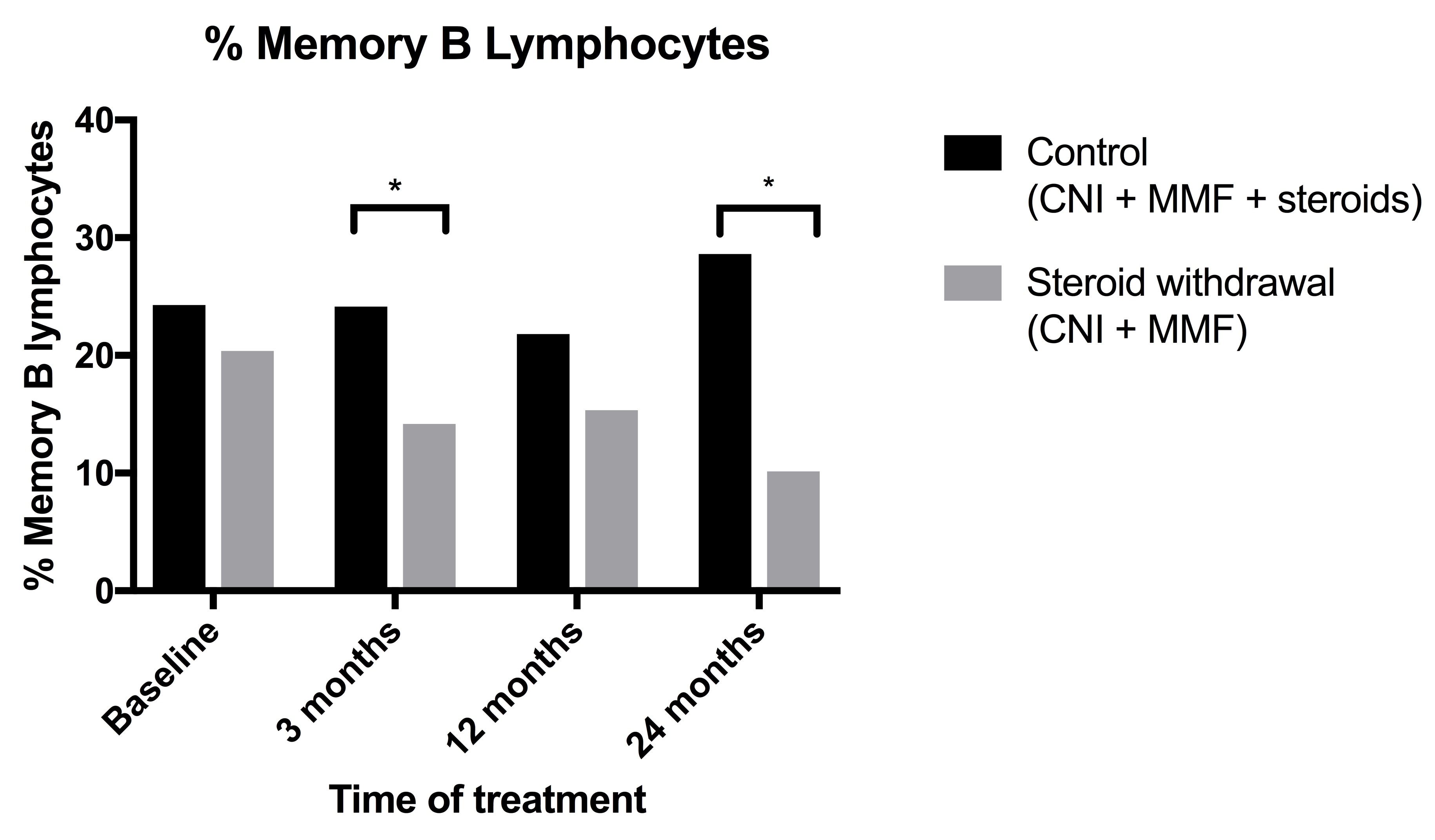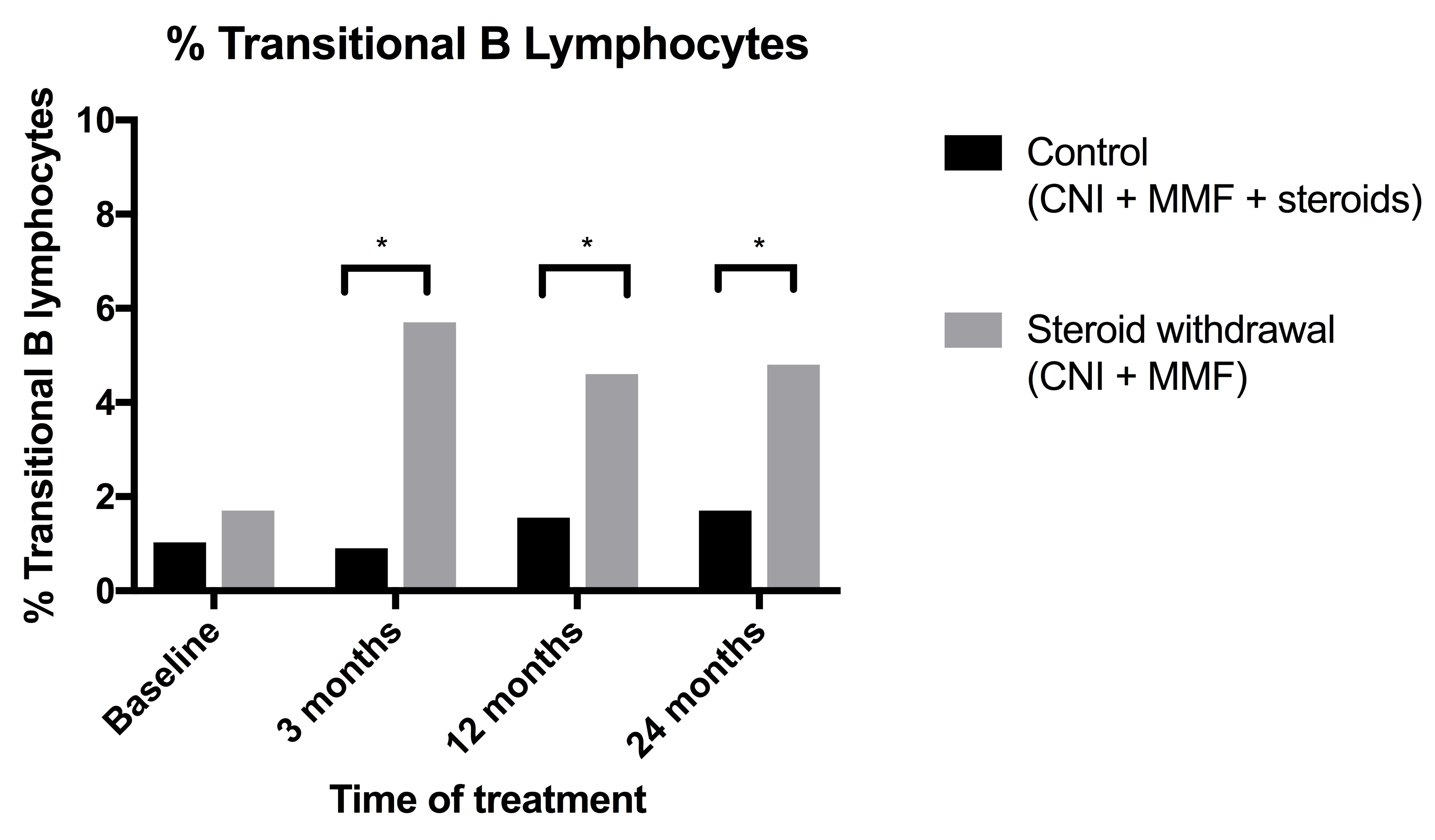Steroid withdrawal Promotes B Lymphocyte Phenotypes of Operational Tolerance Predisposition in Renal Allograft Recipients
Laura Llinàs Mallol1, Dolores Redondo Pachón1,2, Dàlia Raïch Regué1, Jose Yélamos3,4, María José Pérez Sáez1,2, Marisa Mir1, Miguel López Botet3,4,5, Julio Pascual Santos1,2, Marta Crespo Barrio1,2.
1Nephropathies Research Group, Hospital del Mar Medical Research Institute, Barcelona, Spain; 2Nephrology Department, Hospital del Mar, Barcelona, Spain; 3Immunology Department, Hospital del Mar, Barcelona, Spain; 4Immunity and Infection Research Group, Hospital del Mar Medical Research Institute, Barcelona, Spain; 5Experimental and Health Sciences Department, University Pompeu Fabra, Barcelona, Spain
Despite high graft-survival rates one year after kidney transplantation, long-term graft survival is still limited. Chronic immunological rejection associated with donor-specific antibodies (DSA) is recognized as a cause of graft loss and current immunosuppressive therapies are still not able to control it. Steroids are effective in reducing the incidence of acute rejection but also are an important cause of morbidity, which may limit long-term graft survival. Several studies have assessed clinical outcomes after steroid withdrawal, but not the effects on peripheral blood lymphocyte subsets. We aimed to assess whether steroid withdrawal modifies the distribution of peripheral blood lymphocyte subsets and circulating anti-HLA antibodies.
We analyzed the immunophenotype of peripheral blood lymphocyte subsets and determined circulating anti-HLA antibodies of 21 patients before, 3, 12 and 24 months after steroid withdrawal and 18 patients who maintained steroids. All patients showed stable renal function during the study. Our results depict that long-term steroid withdrawal promotes an increase in percentage of B lymphocytes compared to basal condition (p = 0.006) and control group (p = 0.04).  This is accompanied with the expansion of naïve B lymphocytes and significant decrease of memory B lymphocytes compared to basal condition (both p < 0.001) and control group (both p < 0.001).
This is accompanied with the expansion of naïve B lymphocytes and significant decrease of memory B lymphocytes compared to basal condition (both p < 0.001) and control group (both p < 0.001). 
 We observed an expansion of transitional B lymphocytes compared to basal condition (p = 0.002) and control group (p = 0.013).
We observed an expansion of transitional B lymphocytes compared to basal condition (p = 0.002) and control group (p = 0.013).  No significant differences were found on T lymphocyte subpopulations or Natural Killer (NK) cells. No development of de novo DSA was identified and only 2 patients developed non DSA HLA antibodies.
No significant differences were found on T lymphocyte subpopulations or Natural Killer (NK) cells. No development of de novo DSA was identified and only 2 patients developed non DSA HLA antibodies.
Operational tolerant kidney transplant receptors, characterized by long-term acceptance of a mismatched kidney allograft after immunosuppressive drug withdrawal, have been described to display increased numbers and frequency of B lymphocytes and naïve B lymphocytes and increased frequency of transitional B lymphocytes in comparison with stable patients. Taken together, these data suggest that steroid withdrawal may be beneficial and patients could have increased possibilities to acquire operational tolerance.
PI13/00598 (Institute of Health Carlos III, ISCIII).
